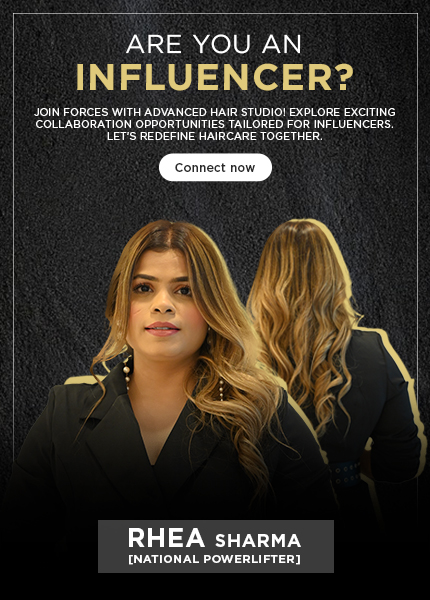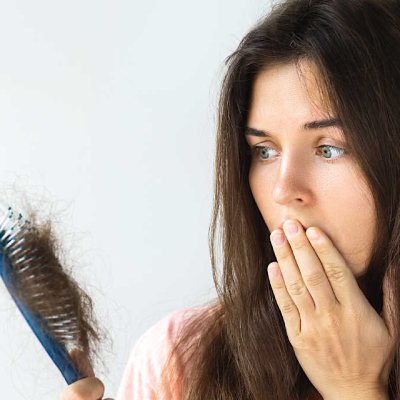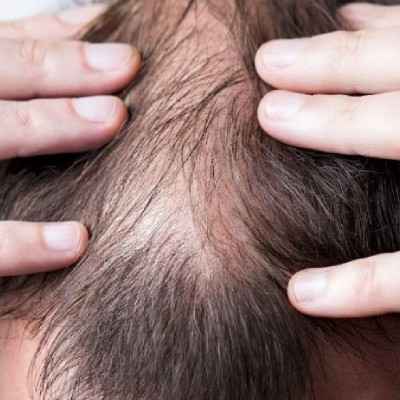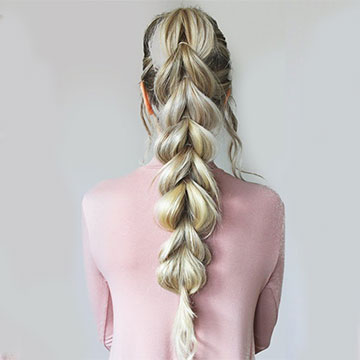A Trichologist's Perspective: How to Care for Indian Scalp and Hair

21 June 2024

drgarg

Indian hair and scalp are unique and require special care to maintain health and beauty. With the right information and techniques, you can achieve luscious and strong Indian hair that is the envy of others. That's why we've turned to the experts - trichologists - for their insight and advice on tips for healthy hair and scalp.
Most Common Hair Issues
Indians frequently struggle with hair loss, dandruff, split ends, and hair thinning. Let's look at the reasons behind each of these hair issues.- Hair Fall The majority of Indians experience hair fall frequently. Stress, hormone imbalances, poor diet, and environmental factors like pollution are potential reasons for hair loss. Furthermore, tight hairstyles, chemical treatments, and excessive use of hair styling equipment might result in hair loss.
- Dandruff Dandruff is a common scalp condition caused by the overgrowth of yeast on the scalp. It leads to an itchy and flaky scalp, which may cause hair fall in severe cases. Several factors, including poor hygiene, oily scalp, and hormonal imbalances, cause dandruff.
- Split Ends The hair cuticle damage leads to split ends. Split ends can be brought on by overbrushing, harsh chemicals in hair products, heat style, and environmental factors, including sun exposure. Damaged hair cuticles cause the hair shaft to split, making the hair dry, brittle, and more likely to break.
- Hair Thinning Both men and women commonly experience hair thinning. Several things, such as heredity, hormone problems, inadequate nutrition, and environmental factors, bring it on. Natural ageing and medical diseases like alopecia can both cause hair thinning.
Also Read : Psoriasis Vs. Dandruff: What Are The Signs, Causes, And Treatment
For the right treatment to be given, it is imperative to comprehend the underlying reasons for these hair problems. Hair problems may occasionally result from a mix of causes. A trichologist can offer specialized treatment strategies to enhance the health of your scalp and hair while identifying the underlying causes of hair problems.
Maintaining a healthy scalp and hair is essential to avoiding hair problems. Hair can be kept healthy by maintaining good scalp hygiene, eating a balanced diet, and avoiding harsh hair treatments. To identify and cure the root of your hair problem, see a trichologist if you are experiencing any hair problems.
Tips to Take Care of Scalp and Hair
You must properly care for your scalp and hair to maintain healthy, beautiful hair. The following advice can help you maintain healthy hair and skin:- Maintain Proper Scalp Hygiene Correct scalp care is necessary for healthy hair. Wash your hair frequently with a gentle shampoo to get sweat, oil, and filth off your scalp. Avoid washing your hair in hot water to prevent damage and scalp drying. Massage your scalp gently with shampoo to improve blood flow and promote healthy hair regrowth.
- Use a Suitable Shampoo Pick a shampoo appropriate for your hair's texture and condition. Use a clarifying shampoo to thoroughly clean your oily scalp and remove any extra oil. Use a moisturizing shampoo if you have dry or damaged hair or scalp.
- Condition Your Hair Use a conditioner made for your hair type after shampooing. Before giving it a rinse, let it sit for a bit for better results.
- Avoid Harsh Chemical Treatments Harsh chemical procedures like colouring, perming, and straightening can harm your hair's cuticles, causing dryness, breakage, and hair loss. For these treatments, use soft, natural, or organic hair products.
- Protect Your Hair From Heat Blow dryers, curling irons, and straighteners damage your hair's cuticles, resulting in split ends and hair thinning. Use these instruments with caution and in frigid areas. Spray on a heat protectant to lessen heat damage.
- Eat a Balanced Diet Healthy hair growth requires a vitamin, mineral, and protein diet. To encourage good hair growth, include foods like eggs, almonds, seafood, leafy greens, and fruits.
- Remain Hydrated. Drink enough water each day to maintain your scalp and hair healthy. Water moisturizes the body and guards against dryness and degeneration of the hair and scalp. Moreover, it helps the body's detoxification process.
- Speak with a Trichologist See a trichologist if you routinely experience hair issues like hair loss, dandruff, or thinning hair. A trichologist can identify the root of your hair problem and provide personalized hair care treatment options to help your scalp and hair.
How Can a Trichologist Help Diagnose and Treat Specific Hair and Scalp Issues?

Hair and scalp disorders can be diagnosed and treated with help from a trichologist:
- Diagnosis Tests Trichologists employ a range of diagnostic techniques to identify hair and scalp issues. Blood tests and microscopic inspections of hair and scalp samples can all be used to perform these tests. Trichologists use these tests to identify the cause of the issue and suggest a workable solution.
- Customized Treatment Plans A trichologist develops a customized hair regrowth treatment plan after identifying the underlying causes of hair and scalp issues. The hair treatment plan may include medication, topical treatments, hair care tips, and alterations to one's way of life. Trichologists may advise dietary changes, stress-reduction techniques, and other lifestyle modifications as part of an all-encompassing approach to hair and scalp health.
- Hair Transplants Trichologists may advise hair transplants in cases of extreme hair loss. To do a hair transplant, hair follicles from a donor area are removed and transplanted to the areas of the scalp that are bald or thinning. Modern methods, such as Follicular Unit Extraction (FUE) and Follicular Unit Transplantation, are used by trichologists to perform hair transplants.
- Hair Restoration Therapies Trichologists use various hair restoration techniques to stimulate growth and improve scalp health. Low-Level Laser Therapy is an example of this procedure (LLLT). You can address many scalp and hair issues with these non-invasive procedures.
- Hair Extensions Hair extensions are cosmetic items that can lengthen, volumize, or thicken natural hair. These extensions can be made of real or synthetic hair and come in various designs, hues, and textures to match the wearer's hair.
Conclusion
Trichologists are expert hair doctors who can identify and treat issues with the hair and scalp. After performing several tests to identify the underlying causes of hair and scalp problems, they provide treatment programs to enhance hair and scalp health. Trichologists use contemporary treatments such as hair transplants, hair restoration therapies, and laser therapy to restore the health and appearance of the scalp and hair. Our team of skilled trichologists at the AHS hair clinic can provide individualized care and treatment if you have hair problems. If you want the hair of your dreams, reserve a time slot today.Stay Updated
Subscribe to our email newsletter for helpful tips and valuable resourses
Be an influencer
Join forces with Advanced Hair Studio! Explore exciting collaboration opportunities tailored for influencers. Let's redefine haircare together.
Connect now












